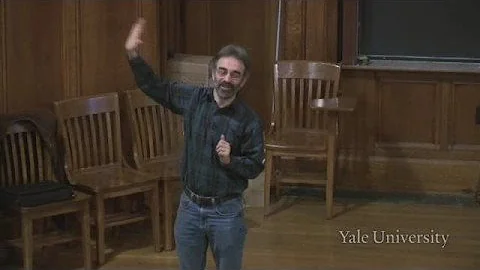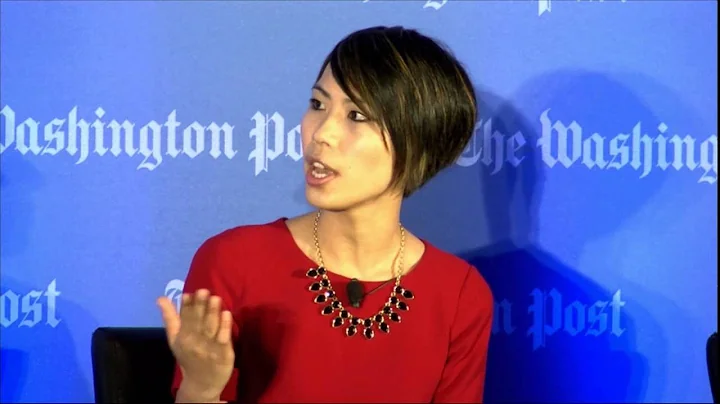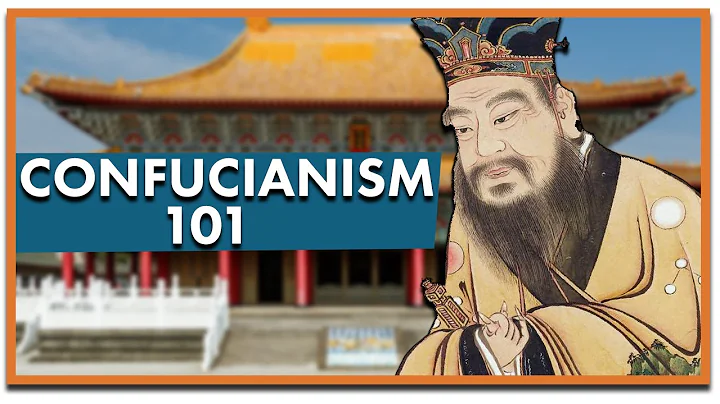Song Shenzong The vigorous Wang Anshi's reform in the late years of Xining suffered another huge blow. After Lu Huiqing, the second figure of the reform faction, was demoted and released, Wang Anshi who presided over the reform also resigned from the position of prime minister. Since then, two important leaders of the reform faction have left the imperial court, and the implementation of the new law is facing the crisis of being abandoned halfway. Historians have different opinions on the emergence of this crisis and have given different explanations. Many people believe that the conservative power was too strong and put great political pressure on Song Shenzong, forcing him to make the decision to release Lu Huiqing and dismiss Wang Anshi as prime minister. However, judging from the history books, this statement is not entirely correct. Song Shenzong actually had a deeper reason for adjusting the layout of the imperial court in this way.

According to the historical background analysis at that time, although the opposition from conservatives was still strong, it was the reformists who occupied the center of the court. In fact, since Lu Huiqing came to power, he organized the new party to launch a counterattack against the old party and demoted a large number of old party officials who opposed the reform. This has gradually reduced the power of the opposition old party in the court. Regarding the changes in opposition forces since Xining Reform , it can be found that the changes in the opposition forces in the last years of Xining were much smaller than those during the severe drought in the north in the seventh year of Xining. Song Shenzong was able to support the new law despite the political pressure of a severe drought in the north. How could he be forced to depose two reform leaders in succession under pressure? What's more, Wang Anshi and , Han Jiang, and urgently invited Wang Anshi back the year before, so there was no need to give it up.

Both Wang Anshi and Lu Huiqing played a decisive role in the promotion of Xining's new law. During the reform activities, Song Shenzong regarded these two as important pillars of making the country rich and powerful. Without Wang Anshi, the Xining Reform could not have been carried out vigorously, nor could it have alleviated the mess left by and Song Yingzong . Without Lu Huiqing, the new law would have been abolished under the political pressure of Xining for seven years, and there would not have been a good situation in which the new reform party spread throughout the center of the court. It can be said that in the last years of Xining, Song Shenzong was actually facing the best situation since the reform. Conservative ministers such as Sima Guang, Feng Jing, Han Wei and others who vigorously obstructed the reform in the early stages of the reform were all demoted one after another, and the resistance to the new law was unprecedentedly reduced.

Under such a struggle situation, when the reformists were pursuing their victory, a crisis suddenly emerged in which two important figures resigned one after another. This situation caused a huge blow to the advancement of the new law, which was temporarily interrupted. In terms of the situation at that time, it is actually inconsistent with the actual situation to simply believe that Song Shenzong could not withstand the pressure of conservatives, causing the New Deal policies to waver. A comprehensive analysis of all aspects of historical data shows that the sudden change in the situation at that time was more likely to be caused by problems within the reform faction. These problems caused internal divisions within the reform faction, making it difficult to continue the original policy and necessitating adjustments to central personnel. The root cause of all this lies in the two reform leaders Wang Anshi and Lu Huiqing.

As mentioned earlier, Wang Anshi and Lu Huiqing did not have any essential contradiction, but they had conflicts over the implementation route of the reform, which in turn triggered political conflicts between them. Wang Anshi was a moderate reformist. Because he had many friends who were conservative ministers, he was unwilling to push the reform into party struggle. Therefore, when he was in power, he tried his best to control the intensity and scope of the struggle and prevent the emergence of crony disputes. Due to the emergence of such a situation, the reformists were once suppressed by the conservatives and found it extremely difficult to advance the new law. Moreover, the conservatives took advantage of Wang Anshi's gentlemanly style and used partisanship to criticize and criticize him, forcing him to resign as prime minister for the first time. This is also the root cause of the first crisis of Xining's new law, which was almost completely abolished.

It was precisely because of Lu Huiqing's efforts to turn the tide that the conservatives' first political offensive to repeal the new law was stopped, allowing the new law to continue to be maintained. Therefore, Lu Huiqing became the representative of the radical ministers among the reformists and the number two figure in the reformists.Lu Huiqing's idea of reform is very extreme, that is, he must first defeat the conservatives through party struggle, and then he can successfully implement the new law. Under his auspices, the reformists evolved into the new party, and used party struggle to drive the conservatives out of the center of the court, greatly increasing the power of the new party. But at the same time, Song Dynasty imperial court clique disputes were also provoked. The political struggle that was originally limited to the scope of the reform gradually evolved into a political struggle between the new party and the old party, which made Song Shenzong difficult to accept.

So at the suggestion of the conservative prime minister Han Jiang, Song Shenzong recalled Wang Anshi and prepared to let him preside over the reform instead of Lu Huiqing. But as a result, political conflicts arose within the reform faction. Some are moderates who support Wang Anshi, and some are the new party who support Lu Huiqing. So before the old conservative party could counterattack, the new party started fighting with each other.
In the new round of political struggle, Lu Huiqing has become a key target of attack. First, his younger brother Lu Shengqing was expelled from the capital for crimes and was appointed deputy transit envoy of Jiangnan West Road. Then he was impeached by the censor Cai Chengxi for many crimes, including forming a party and harming the country. The most exaggerated thing is Wang Anshi's son Wang Yu, who instigated the imperial censor Zhongcheng Deng Wan to report that Lu Huiqing's brothers had borrowed Huating County's to enrich the people by five million, and they also bought land with the county magistrate Zhang Ruoji to commit evil.

As Wang Anshi's son Wang Yu was involved, things became very intense. Huge rifts appeared within the new party. The mutual hostility between those who supported Wang Anshi and those who supported Lu Huiqing made the political struggle move in an unpredictable direction. The existence of the new party was originally to promote the new law, but now it caused internal strife and fighting, which also made Song Shenzong very dissatisfied. In the end, Lu Huiqing resigned as prime minister and came to Chenzhou, and the new party suffered heavy losses due to internal strife. Lu Huiqing wrote a self-defense statement before being released, and Song Shenzong showed it to Wang Anshi. Only then did Wang Anshi find out that Wang Yu was behind it, and he was so angry that he cursed Wang Yu. However, Wang Yu was so angry that he suffered a recurrence of gangrene and died. This also dealt a huge blow to Wang Anshi, making it difficult for him to continue presiding over the reform affairs in the court.

If Song Shenzong demoted Lu Huiqing to calm down the disputes within the reform faction, then allowing Wang Anshi to ask for resignation was forced by the situation. Because Lu Huiqing was demoted and Wang Yu played the role of a mastermind behind the case, Wang Anshi was condemned by officials within the New Party. Such things as behind-the-scenes work have been despised by the public since ancient times. The target of Wang Yu's evil hand was actually not the conservatives, but the new party ministers. How should the allies accept this? Although there is evidence that Wang Anshi was not involved, how many people can believe it? Wang Anshi was tricked by his son this time, which not only caused huge losses to the New Party, but even Wang Anshi's own political reputation was completely smeared.

Wang Anshi himself had no face to continue presiding over the reform work, and Song Shenzong did not dare to completely believe him. This reduction in trust is not due to Wang Anshi's character, but to his credibility. Wang Anshi's credibility has been questioned by the internal team, which will cause him to encounter internal obstacles when promoting the new law, and ultimately affect the effectiveness of the implementation of the new law. In addition, Wang Anshi also had differences with Song Shenzong on the third content of the reform. When the two first drew up the direction of Xining's reform, they identified three directions: enriching the country, strengthening the army, and recruiting soldiers. During the Xining period, we mainly focused on the first two, and then we will advance on the recruitment of scholars and the official system. However, Wang Anshi and Song Shenzong had different views on the reform of the official system.

In the early years of the Song Dynasty, in order to prevent the prime minister from having too much power, Zhao Kuangyin and Zhao Guangyi promulgated many procedures for shortcuts to officialdom, allowing the descendants of the founding heroes to serve as officials for generations with "favor". This not only skipped the imperial examination, an important means of recruiting scholars, but also made the agency redundant and created confusion and discord between official positions and power. Redundant officials have become a serious problem in Song Dynasty society since the Song Zhenzong era, and it is becoming more and more serious.This not only brought great chaos to the country, but also made the country's official expenditure huge and extremely expensive, which weakened the national power and made the court's work efficiency very low. Therefore, among many ministers' suggestions for reform, reforming the official system and the recruitment process have become important.

Since the country was in a weak state when Song Shenzong first came to the throne, it was not only economically difficult, but also politically monopolized by conservatives, so the reform of the official system was put at the end. After the reforms during the Xining period, the country's vitality was greatly restored, and the reform of the official system was put on the agenda. Wang Anshi is relatively conservative on the reform of the official system. He is not willing to touch the core interests of conservatives, so he put forward the suggestion of "Dong Zheng's Reality of the Official System." Its purpose is to adjust the official system on a small scale, restore official functions and roles, and reduce redundant and chaotic official positions. Song Shenzong was more bold than Wang Anshi. He proposed to restore the old practice of the three-province system of the Tang Dynasty, strengthen centralization, and reduce redundant officials and idle officials who were on empty pay to save official expenses.

If Wang Anshi’s strategy of enriching the country and strengthening the army was to weaken the interests of the scholar-bureaucrats and civil servants in the civil society, then Song Shenzong’s official reform was to poach the political corners of the scholar-bureaucrats and civil servants. This kind of reform is the most difficult and bloody, and will inevitably be criticized by thousands of people. The reason why the Qingli New Deal in the Song Renzong era failed was because Fan Zhongyan and Ouyang Xiu put the reform of the official system at the beginning, which offended the interests of conservatives from the beginning and received a head-on attack. Wang Anshi learned from Fan Zhongyan's experience and lessons, so he put the reform of the official system behind him, and he did not dare to make it too big for fear of causing chaos in the world. Song Shenzong's radical reform strategy was too difficult for Wang Anshi to implement after the internal strife.

When Wang Anshi’s credibility is questioned both internally and externally, if he continues to reform the official system, he will be said to be using his power to retaliate. If it was a shameless official like Han Qi , he would naturally do it shamelessly. Wang Anshi is a gentleman and cannot bear this kind of stimulation, so he can only end in failure. Moreover, in the face of huge resistance to the reform of the official system, the new party cannot do without a united new party. The existence of Wang Anshi made it impossible for the new party to unite, and was not conducive to the hard nut of official reform. Judging from the historical development, Song Shenzong was aware of this, so he pushed himself to the forefront from the beginning of the official reform. As emperor, he presided over the reform of the official system. This was the Yuanfeng reform that laid the foundation for the next two hundred years of the Song Dynasty.

Generally speaking, the series of official adjustments made by Song Shenzong after the internal strife in the new party were all planned in advance for Yuanfeng's restructuring. The purpose of demoting Lu Huiqing was to quell the internal strife of the new party, and to agree to Wang Anshi's resignation as prime minister was to personally stand on the front line of the reform. Reform of the official system, a reform that affects the political system, cannot be undertaken by any prime minister, and can only be done by the emperor himself. The military and political reforms in the early years of the Song Dynasty were also personally initiated by Zhao Kuangyin and Zhao Guangyi. The emperor's special status prevented the opposition below from finding a positive target for criticism, which was conducive to the implementation of the new system. If the prime minister presides over reforms, he will definitely be labeled with various labels. As a result, the prime ministers either shrank their hands or acted contrary to their wishes. In the end, they could only become mere formalities and could not achieve the expected goals.
















![[Tzu Chi Primary School] Jing Si Devotion: The Meaning of Filial Piety - DayDayNews](https://i.ytimg.com/vi/zjbBVfHZMfc/hq720.jpg?sqp=-oaymwEcCNAFEJQDSFXyq4qpAw4IARUAAIhCGAFwAcABBg==&rs=AOn4CLB_MImAGXuLnvrVKjtlWHOfGZdbvw)




